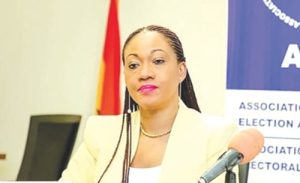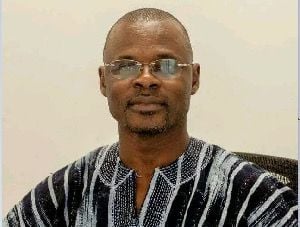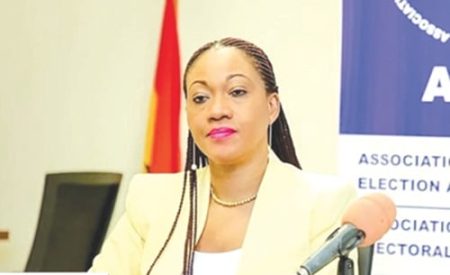The Member of Parliament for Garu, Dr. Thomas Anaba, has levied serious accusations against former Finance Minister Ken Ofori-Atta, alleging that the former minister is feigning the need for medical treatment abroad to evade scrutiny from the Office of the Special Prosecutor (OSP). This accusation stems from the announcement by Mr. Ofori-Atta’s wife, Professor Mrs. Angela Ofori-Atta, that the former minister recently underwent a robotic-assisted radical prostatectomy for prostate cancer at the Mayo Clinic in Rochester, Minnesota. Dr. Anaba, a medical professional himself and former Medical Director of the Greater Accra Regional Hospital, contends that this medical procedure, while advanced, is not beyond the capabilities of Ghanaian medical practitioners and that Mr. Ofori-Atta’s condition could be adequately managed within Ghana. This assertion underscores the core of Dr. Anaba’s argument: that the former minister’s trip abroad for treatment is a calculated maneuver to avoid cooperating with ongoing corruption investigations.
Dr. Anaba’s skepticism regarding the necessity of Mr. Ofori-Atta’s foreign treatment is rooted in his professional assessment of the medical situation. He emphasizes that while Ghana may not possess the specific robotic technology employed in the procedure, skilled urologists across the country, including at Ridge Hospital and in Tamale, are equipped to perform prostatectomies through alternative, equally effective methods, such as transurethral resection or open surgery. He points out that numerous Ghanaians successfully undergo cancer surgeries within the country’s healthcare system, implying that Mr. Ofori-Atta’s case presents no unique challenge requiring treatment abroad. Furthermore, Dr. Anaba highlights the generally non-debilitating nature of post-prostatectomy recovery, asserting that such a condition would not typically preclude air travel. This directly counters any implied justification for Mr. Ofori-Atta’s extended stay abroad.
The timing of Mr. Ofori-Atta’s medical procedure and his subsequent stay abroad, coincidentally occurring during a period of intense scrutiny from the OSP, has fueled Dr. Anaba’s suspicions. The former minister’s involvement in several controversial financial dealings during his tenure, including issues surrounding the issuance of government bonds and management of public funds, has placed him squarely in the OSP’s crosshairs. Dr. Anaba’s accusations paint a picture of a deliberate strategy by Mr. Ofori-Atta to use his medical condition as a pretext to avoid facing questioning and potential legal consequences related to these investigations. This alleged tactic casts a cloud over the legitimacy of Mr. Ofori-Atta’s medical trip and raises questions about the sincerity of his stated need for treatment abroad.
The controversy surrounding Mr. Ofori-Atta highlights a broader debate concerning access to specialized medical care and the perceived disparity between healthcare services available in Ghana and those offered in developed countries like the United States. While acknowledging the advanced technology available at institutions like the Mayo Clinic, Dr. Anaba’s statements underscore the competence and capabilities of Ghanaian medical professionals. He implicitly argues that choosing treatment abroad in this instance is not driven by medical necessity but rather by a desire to evade accountability. This implicitly casts doubt on the narrative presented by Mr. Ofori-Atta’s family regarding the urgency and necessity of the procedure being performed specifically at the Mayo Clinic.
The implications of Dr. Anaba’s accusations extend beyond the immediate case of Mr. Ofori-Atta. His statements touch upon issues of public trust, transparency, and accountability within the government. By suggesting that a high-ranking official is exploiting a medical condition to avoid legal scrutiny, Dr. Anaba raises concerns about the potential misuse of power and the erosion of public confidence in the integrity of government officials. This case serves as a stark reminder of the importance of upholding ethical standards and ensuring accountability at all levels of governance, irrespective of personal circumstances.
The unfolding situation surrounding Mr. Ofori-Atta’s medical treatment and absence from Ghana underscores a delicate balancing act between respecting an individual’s right to seek medical care and the public’s right to demand transparency and accountability from its leaders. While Mr. Ofori-Atta is entitled to receive the best possible medical care, the circumstances surrounding his treatment abroad, coupled with Dr. Anaba’s serious allegations, necessitate a thorough investigation to determine the veracity of the claims and ensure that justice is served. Whether Mr. Ofori-Atta is genuinely seeking necessary medical treatment or using his health as a shield against legal repercussions remains to be seen. However, this ongoing situation underscores the crucial importance of maintaining transparency and upholding the rule of law, even in the face of personal health challenges.














